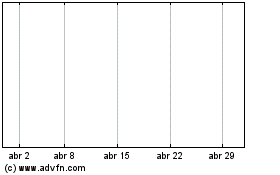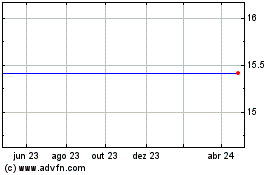By Eric Sylvers and Ben Dummett
This article is being republished as part of our daily
reproduction of WSJ.com articles that also appeared in the U.S.
print edition of The Wall Street Journal (March 23, 2019).
MILAN -- Peugeot maker PSA Group approached Fiat Chrysler
Automobiles NV earlier this year about combining the two car
makers, according to people familiar with the matter, proposing to
form a $45 billion industry behemoth that would reposition their
businesses in the U.S. and Europe.
Fiat Chrysler rebuffed the overture, as it had previous ones by
the French car maker, according to these people. Those approaches
haven't been previously disclosed.
Fiat Chrysler has said for years that it is open to a big deal
with another auto maker if it fits the company's objectives.
Executives have balked, though, at a tie-up with Peugeot because it
would increase the Italian-American auto maker's already large
exposure to Europe's mature market, according to people familiar
with the matter.
The company's controlling family, the Agnellis of Italy, is also
opposed to a combination with Peugeot that could mean accepting a
large proportion of PSA, according to one of these people. Peugeot,
which has telegraphed its interest in finding a partner, would
likely need to fund any deal in large part with stock in order to
keep its debt in check, according to this person. The French auto
maker is still digesting its 2017 acquisition of Opel, General
Motors Co.'s European business.
Auto-industry consolidation is a perennial theme, with a
multitude of brands fighting furiously for customers, especially in
mature markets. Auto makers are also under intense pressure to
innovate with electric vehicles and self-driving technology,
forcing collaboration between traditional rivals to share the
investment load.
Sergio Marchionne, Fiat Chrysler's longtime CEO who died
suddenly last year, was himself a high-profile proponent of
deal-making, making no secret of his desire to merge his company
with GM, only to be spurned.
Executives at Peugeot and Fiat Chrysler are no longer talking,
according to people familiar with the matter. Discussions could
resume, though neither side has indicated that as imminent, the
people said.
Fiat Chrysler declined to comment.
A Peugeot spokesman declined to comment specifically on any
approach to Fiat Chrysler. He said the two companies have a joint
venture to make commercial vehicles, so executives are talking all
the time about collaborations.
A spokesman for the Agnelli family's holding company declined to
comment.
Peugeot Chief Executive Carlos Tavares is eager to expand in the
U.S., where the French brand has been absent for almost three
decades. He has outlined plans to eventually reintroduce the
nameplate in the U.S., but a tie-up with Fiat Chrysler would bring
with it wide access to the American market. Fiat Chrysler dealers
selling the popular Jeep and Ram brands could potentially offer
Peugeot models as well.
A deal would give Fiat Chrysler more exposure to Europe, where
Peugeot sold 2.5 million vehicles last year compared with one
million for Fiat Chrysler; but the Italian-American company has
tried in recent years to lessen its dependence on the continent. A
combined Peugeot-Fiat Chrysler would sell almost as many vehicles
in Europe as Volkswagen AG, the market leader with a 24% market
share.
A combination would also lift Peugeot and Fiat Chrysler in the
auto industry's global league table, offering it scale and
potential cost-cutting opportunities. The two companies together
sold 8.7 million cars last year, which would have ranked their
combination at No. 4, just ahead of General Motors' 8.4 million
vehicles sold.
A combined Peugeot-Fiat Chrysler would still be some distance
behind the world's top three sellers. Volkswagen sold 10.8 million
vehicles last year, roughly the same as the alliance between
Renault SA, Nissan Motor Co. and Mitsubishi Motors Co. No. 3 Toyota
Motor Corp. tallied 10.6 million vehicles.
Richard Hilgert, an auto analyst at Morningstar Inc., said a
Peugeot-Fiat Chrysler tie-up would make sense in creating a
formidable competitor to Volkswagen in Europe and gaining scale
globally. "Where it is lopsided is PSA would get Jeep and Ram, and
there isn't anything comparable on the PSA side that would benefit
Fiat Chrysler," he said
The pursuit of a merger follows Mr. Tavares's so-far successful
turnaround of Opel, which was acquired from GM for more than EUR2
billion ($2.26 billion). Opel lost more than $20 billion in the
previous two decades under GM ownership; in 2018, it reported a
4.7% operating margin, marking its first profitable year since
1999.
Mr. Tavares helped steer Peugeot itself out of trouble. In 2014,
the French state and China's Dongfeng Motor Group Co. each took big
stakes in France's second-largest car company behind Renault,
injecting capital in Peugeot as it struggled with steep losses and
a then-stagnant European market.
The recent vintage of the turnaround at Peugeot and its purchase
of Opel could limit the company's financial flexibility. The market
values of Fiat Chrysler and Peugeot are roughly the same, at about
EUR20 billion ($22.65 billion) each. That would make a mostly cash
deal difficult for Peugeot.
There could be regulatory hurdles as well, with Peugeot's
Chinese and French ownership stakes drawing attention in the U.S.
The Committee on Foreign Investment in the U.S. has looked closely
at Chinese-related deal making involving American companies and
technology. The Trump administration has focused on U.S.
manufacturing including the auto industry -- though Dongfeng's
relatively modest 12% stake in Peugeot may not cause much
alarm.
Peugeot's attempt to merge with Fiat Chrysler comes as the auto
industry faces billions of dollars of investments in coming years
to develop electric vehicles, autonomous-driving technology and
less-polluting engines. The industry is increasingly competing --
and partnering -- with technology companies to commercialize
driverless cars and explore ride-sharing opportunities like those
offered by Uber Technologies Inc.
That scramble is coming with a big price tag. Volkswagen said
last week it would cut as many as 7,000 jobs over five years as it
tries to slash costs and make room for new investment in these new
avenues. GM and Ford Motor Co. have disclosed big job losses amid
their own restructurings.
Auto makers themselves are teaming up on projects to innovate.
In the same vein, a full-flung merger would allow Peugeot and Fiat
Chrysler to spread the costs of any new investment push over a
larger production base. Fiat Chrysler in recent years has
concentrated on paying down its debt and has lagged behind
competitors in investments.
Both auto makers have talked openly about finding a dance
partner.
Mr. Marchionne's successor at Fiat Chrysler, Mike Manley,
recently endorsed deal making.
This week, Robert Peugeot, a member of the French family that
owns a large stake in the car maker, told French newspaper Les
Echos that he is open to the idea of a deal with another auto
maker, including Fiat Chrysler.
"With them, as with others, the planets could be aligned," he
said.
Mr. Tavares also has chimed in. "We love to discuss with people
who are open for deals," Peugeot's CEO said at this month's Geneva
motor show.
--William Boston contributed to this article.
Write to Eric Sylvers at eric.sylvers@wsj.com and Ben Dummett at
ben.dummett@wsj.com
(END) Dow Jones Newswires
March 23, 2019 02:47 ET (06:47 GMT)
Copyright (c) 2019 Dow Jones & Company, Inc.
Stellantis NV (BIT:STLA)
Gráfico Histórico do Ativo
De Mar 2024 até Abr 2024

Stellantis NV (BIT:STLA)
Gráfico Histórico do Ativo
De Abr 2023 até Abr 2024
